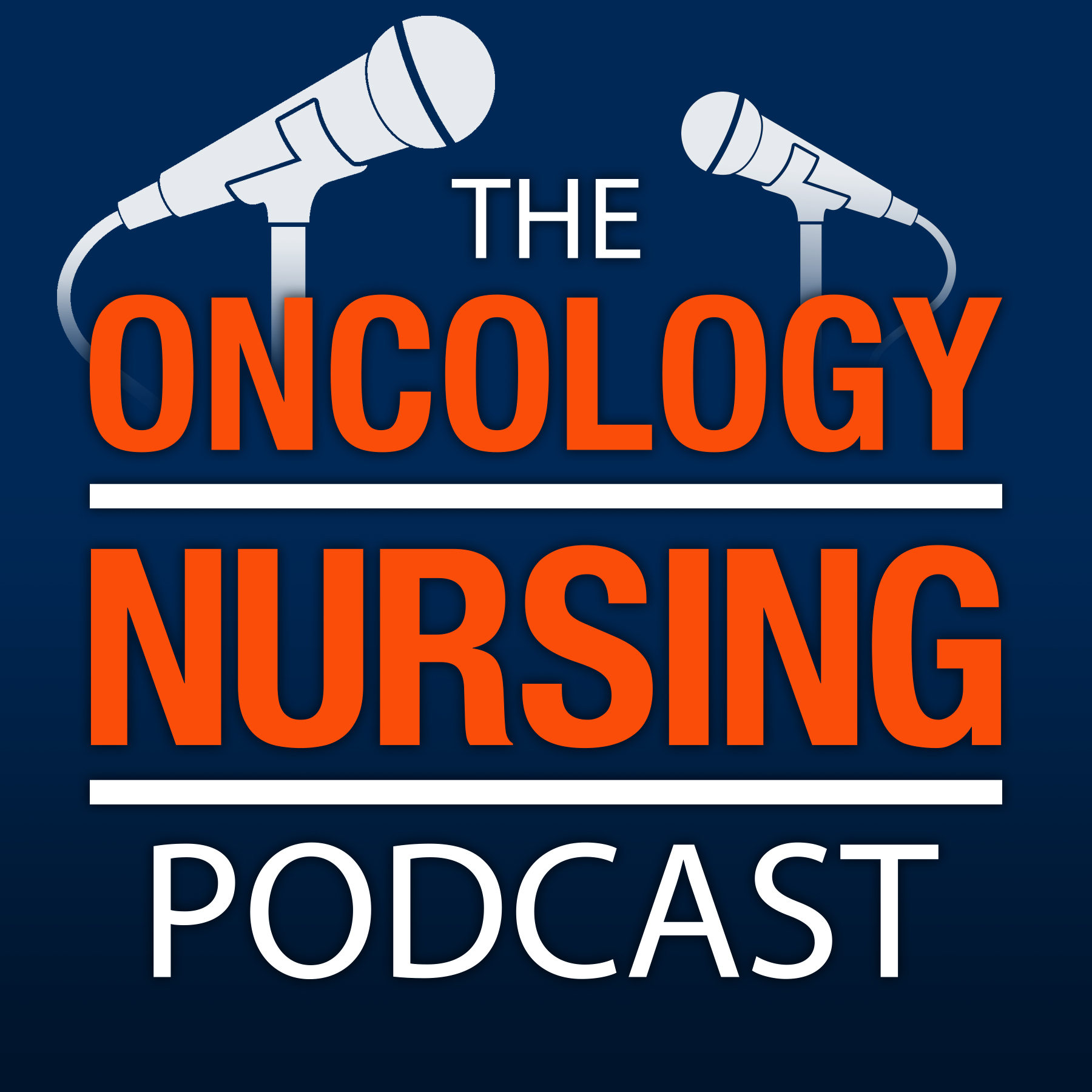
Shownotes Transcript
“Genomics is part and parcel of oncology treatment today. Even if a patient’s genomics might not affect the current choice of therapy, it may do so in the future. The use of genomics and biomarkers is just an evidence-based expansion and extension of our previous care,” ONS member Kristin Daly, MSN, ANP-BC, AOCNP®, nurse practitioner at the Washington University School of Medicine in St. Louis, MO, said in a conversation with Jaime Weimer, MSN, RN, AGCNS-BC, AOCNS®, oncology clinical specialist at ONS. Daly and Weimer discussed oncology nurses’ educational needs to bridge knowledge gaps in cancer genomics, identified genomics tools and resources specifically designed for clinical nursing practice, and shared strategies to implement them inn your patient care processes. Daly presented on the topic during the 2022 ONS Bridge™ virtual conference in September 2022. You can earn free NCPD contact hours after listening to this episode and completing the evaluation linked below.
Music Credit: “Fireflies and Stardust)” by Kevin MacLeod
Licensed under Creative Commons by Attribution 3.0
Earn 0.75 contact hours of nursing continuing professional development (NCPD) by listening to the full recording and completing an evaluation at myoutcomes.ons.org by December 16, 2024. The planners and faculty for this episode have no relevant financial relationships with ineligible companies to disclose. ONS is accredited as a provider of NCPD by the American Nurses Credentialing Center’s Commission on Accreditation.
Learning outcome: The learner will report an increase in knowledge related to cancer genomics.
Episode Notes
Complete this evaluation for free NCPD).
Oncology Nursing Podcast Episode 172: Address Knowledge Gaps in Evidence-Based Precision Medicine Care)
ONS Voice articles:
Predictive and Diagnostic Biomarkers: Identifying Variants Helps Providers Tailor Cancer Surveillance Plans and Treatment Selection)
Educational Resources Will Help Biomarkers Have Even More Impact)
Understand Genomic Variants to Confidently Educate Your Patients)
Genomics’ Red Flag Rule of Too and Two)
Find all ONS Voice articles about genetics and genomics).
ONS Genomics and Precision Oncology Learning Library)
ONS Congress® scholarships)
ONS course: Foundations in Genomics and Precision Oncology)
American Nurses Foundation survey: Pulse on the Nation’s Nurses Survey Series: COVID-19 Two-Year Impact Assessment Survey)
National Cancer Institute resources:
Dictionary of Genetic Terms)
Dictionary of Cancer Terms)
Drug Dictionary)
Psychiatric Clinics of North America article: Genomics for Disease Treatment and Prevention)
To discuss the information in this episode with other oncology nurses, visit the ONS Communities).
To provide feedback or otherwise reach ONS about the podcast, email [email protected]).
Highlights From Today’s Episode
“Precision medicine, genomics, and biomarkers aren’t just buzzwords or trendy new terms. They are the tools that enable oncologists to continue to refine and improve what we have always striven for in oncology care—the continual and ongoing search to provide the most appropriate, and crucially, the most effective treatments for our patients. The use of genomics and biomarkers is just an evidence-based expansion and extension of our previous care.” Timestamp (TS) 03:39
“Our healthcare colleagues, especially our physician colleagues, are often not aware of our nursing training and curriculum. And therefore, sometimes they’re unaware of both our strengths and gaps in our knowledge compared to medical training, especially when we enter a specialized area of nursing like oncology. . . . And that’s a gap between our healthcare colleagues’ knowledge of what our formal training has been and our formal education has been and the kind of care we’re supposed to provide and understanding the science behind that care.” TS 10:52
“Genomics is part and parcel of oncology treatment today. It should be a part of a patient’s evaluation and record at every point in their cancer journey. Even if a patient’s genomics might not affect the current choice of therapy, it may do so in the future. So, it’s important, and it’s important to have it documented.” TS 18:25
“Many new oncology nurses have less time and training, fewer opportunities for in-person education, and fewer experienced nurses to serve as mentors and sources of knowledge. All of this, coupled with that increase pace of change and treatments for a variety of cancers. So, keeping up and staying current is, I know, particularly challenging in these circumstances. And I have to say, I am always so impressed by how oncology nurses come up with solutions, share information, and seek out opportunities to learn in order to take the best care of their patients.” TS 20:46
“It’s important to make it a priority, to set some time aside, regularly for continuing education, however you do that. . . and to use these types of tools. And if you find websites that you find particularly helpful, bookmark them on your phone or computer so they’re easily accessible and to share them with other people.” TS 33:05